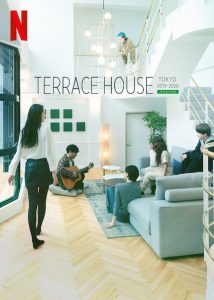I THINK it has now become a well-known fact that most reality shows are not ‘real’ at all. Interference from producers, scripted dialogue, staged fights and more, have become staples in reality TV – all in the name of stirring up drama and getting more viewers to tune in. Of course, in theory, this makes sense. Putting a group of people together and, without interference, expecting them to remain relevant and interesting in such a way that the audience’s interest remains piqued week after week seems like a bit of a longshot.
What if interactions between the participants remain normal and focused on the ‘mundane’ things in life, such as work and family? What if the participants are free to wander and pursue any arising conflicts according to their choosing? What if contestants slowly, achingly, develop real feelings for each other over an extended period instead of whenever the network needs them to ham it up for the cameras? Logic dictates that a reality show with such a premise would not work, because the scheme is rather laissez-faire and relies too much on the innate humanity of its participants rather than writers and producers who might orchestrate drama, developments, and endings for all involved. It seems natural to want to dismiss the idea that watching people come together in a single space, and communicate, allowing their natural emotions and feelings to build and develop over time might not work, and yet, some shows prove the opposite: that it is indeed possible to have a reality show that is unscripted and reliant on the natural experiences and emotions of the participants, rather than orchestrated drama. The ‘Terrace House’ series, built on the simple premise of having six participants (three men and three women) live in the same house over several weeks, carrying on with their jobs and lives, even as they get to know and develop feelings for each other, is one such remarkable series. I am currently watching the most recent edition, ‘Terrace House: Tokyo 2019 – 2020,’ and although I fully expected to be bored going into it, I can now say that it is one of the most interesting and emotional reality series that I have ever come across, despite the premise being based only around these six individuals and their interactions with each other.

The show is set in Japan, and therefore ‘Terrace House’ becomes not just another experience in reality TV, but also an opportunity to view, learn from, and relate to an entirely different culture from what you may be used to, while at the same time allowing yourself to be able to appreciate the points of similarity that may exist between viewer and participant in the show. Such moments of appreciation may come, for instance, when you meet the participant named Kaori, who is an illustrator that left a previous job to pursue her dream of being in the arts. A connection may occur between a viewer and the young man named Shohei, who does not believe in settling for doing one thing as his occupation for the rest of his life, or Haruka, the actress whom Shohei initially butts heads with, for both her emotional awareness and her focused confidence. The moment of relatability might occur in a moment of action rather than through a character. Do the participants going on dates to cute restaurants around Tokyo make you reminisce about your own dating life? Do the moments when the participants are rejected by the person they are attracted to also make you teary-eyed? Is the participants’ wicked sense of humour something that you relate to, or perhaps you relate to them being terrible cooks instead? Whatever it is, there is sure to be something in this show that underscores our common humanity and proves the point of there not being any need for a forced script to stir up drama in ‘reality’ television. Conflict is natural and inevitable. Perhaps ‘Terrace House’ teaches us that the journey there can be as entertaining as the conflict itself; that maybe, sometimes, a conversation or a date or a group of friends having dinner together and talking about their day at work can be as interesting and as entertaining as a fist-fight.
‘Terrace House: Tokyo 2019 – 2020’ and the way it has allowed me to observe these six individuals go about their lives, leads me to think that perhaps our daily lives are all much, much more interesting than we think and that our individual stories, while banal and mundane to us, might be much more amusing or entertaining to someone who is on the outside looking in – and that to me, is all the support I need for the blue days where I feel as if I am not enough. This show reminds me that I am enough; that my life has enough ups and downs worthy of a reality show; all our lives do. Our idea of ‘normalcy’ is merely another person’s idea of fantasy or heartache or amusement or joy.


.jpg)











